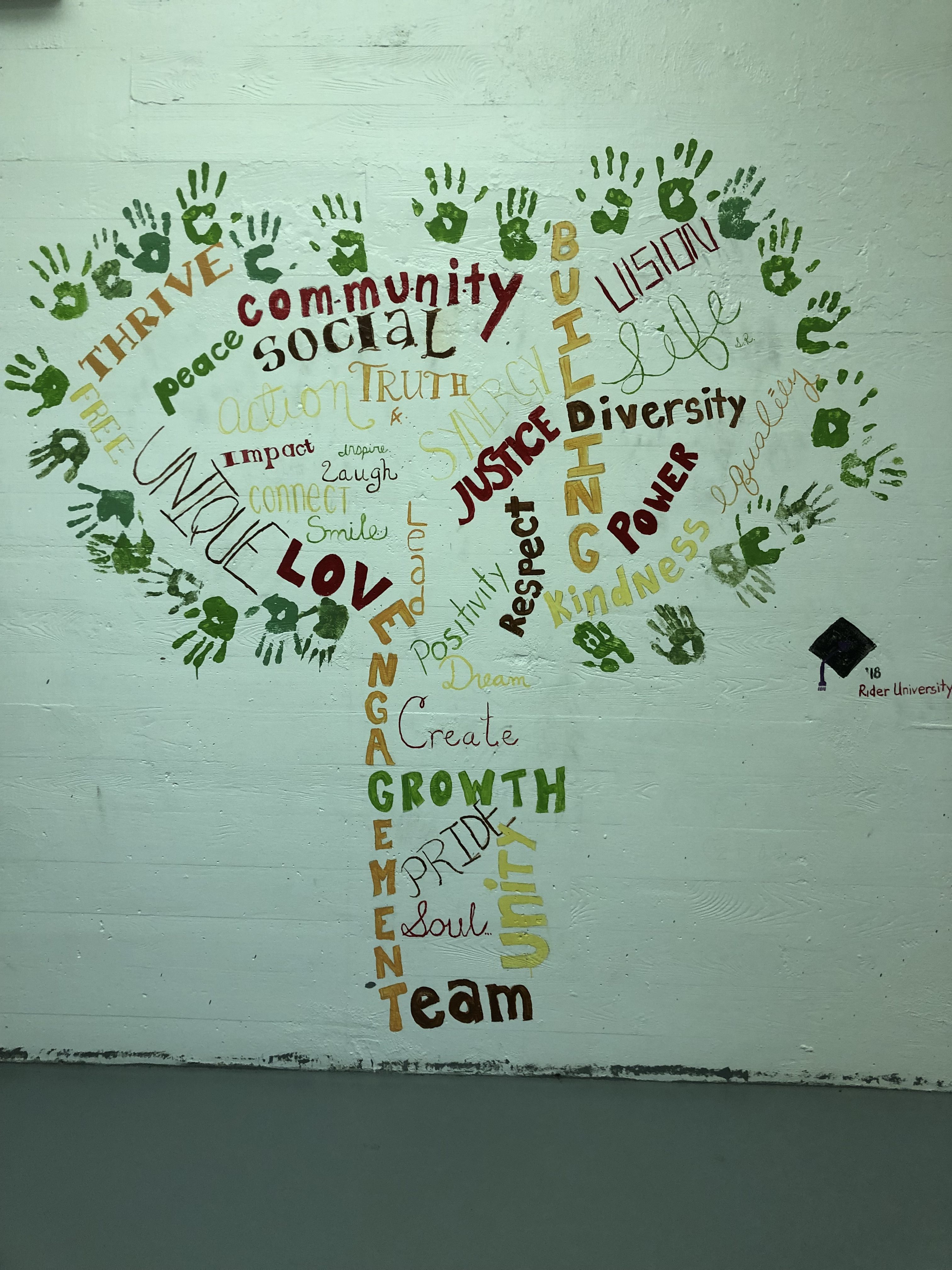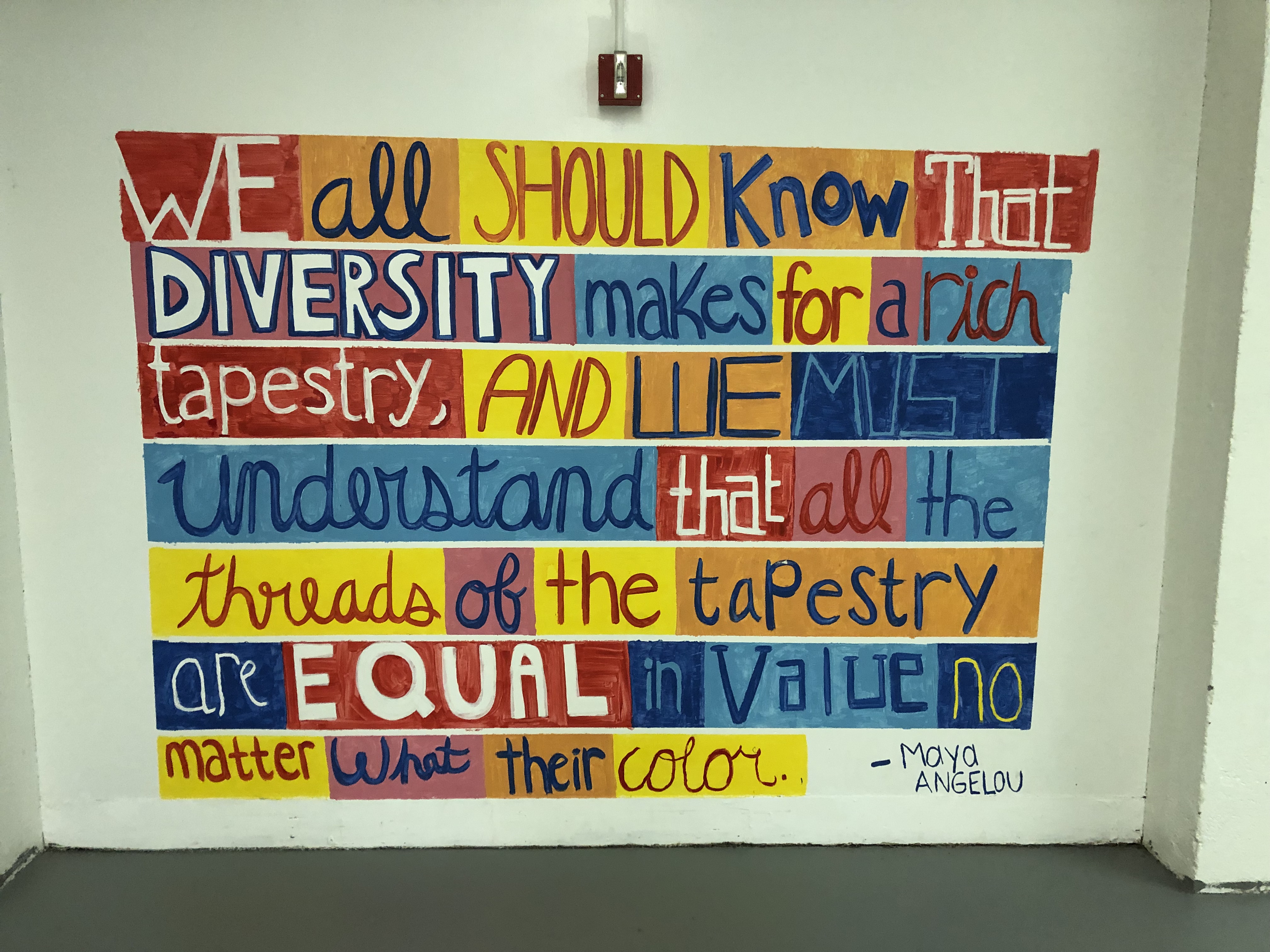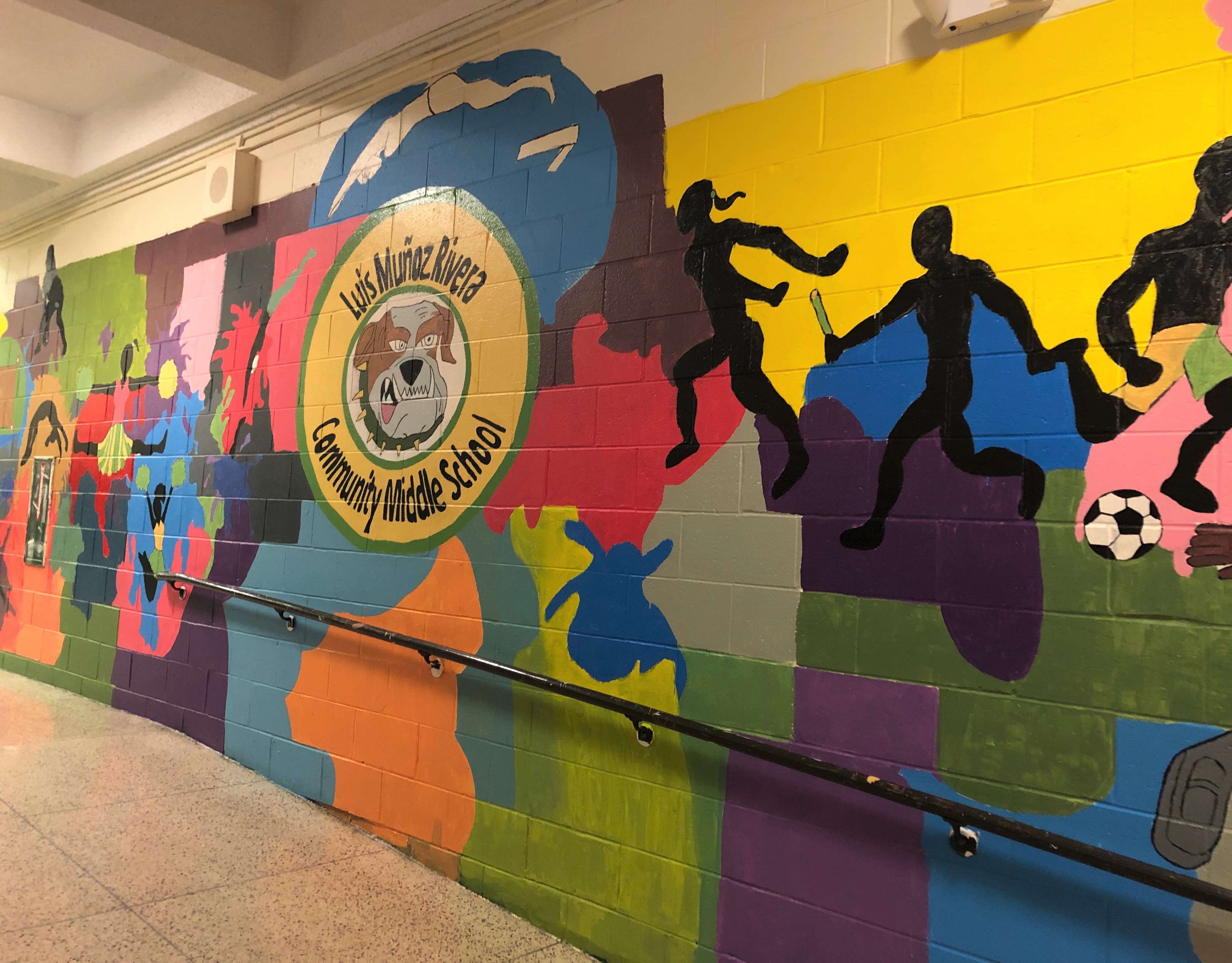The Effects of Trauma and Trauma Informed Care in Trenton
Amanda Mannarino & Morgan Misson
December 6, 2018
Trauma and Trauma Informed Care
In New Jersey 41% of the youth ages 0-17 have experienced trauma one or more times. They are facing hunger, violence, drug abuse, sexual abuse, physical abuse and even homelessness. In Trenton 98% of children are economically disadvantaged. They experience violence inside and outside of the home. Others are dealing with incarcerated or drug abusing parents or family members. Children and young adults facing these traumas or Adverse Childhood Experiences (ACE’s) are later faced with damaging lifelong threats. They are at a higher risk of issues affecting their development, learning and health. As a result of these ACE’s the children and young adults develop “Toxic Stress”. This kind of stress increases the risk of children and young adults of heart disease, stroke, cancer, lung disease, diabetes, Alzheimer’s and suicide. It also makes them more susceptible to develop drug and alcohol problems.
These issues are unfortunately regular occurrences in the city of Trenton. Trauma informed care services provide the mental and emotional support that is needed after facing an ACE. It is not a new form of mental health support, however in the last five years there has been more awareness of the existence of stress caused by neighborhood and home trauma. Currently there are not many programs to help those affected by the post traumatic stress of Adverse Childhood Experiences. However, we spoke to those who are trying to promote awareness of the stress of trauma and trauma informed care.
What is being done?
We reached out to members of the TCNJ faculty and the Mercer Street Friends Organization to find out more about trauma informed care and the effect that trauma has on the development of children and young adults. Through them we attained more knowledge of trauma informed care, how important they believe trauma support is for students, what to look for when a child or young adult is experiencing trauma, and what is being done to support those affected. The trauma that children and young adults in Trenton are facing not just limited to witnessing or being involved in violence, physical abuse or sexual abuse but also having the death of a parent(s), being separated from their parent(s) having an incarcerated parent, being a foster child, experiencing homelessness and not knowing when their next meal is.
The “toxic stress” produced from experiencing such traumas not only affect brain development but also their process of learning. “It is hard to expect a student to be able to focus on their schoolwork while they have the stress from a friend being shot a couple days ago, a parent using drugs and having to pick up siblings 1-3 at other schools in the area” says Chelsea Jenkins, from Mercer Street Friends at Rivera Community Middle School. We spoke with Dr Jill Schwarz, an Assistant Professor in the School of Education at TCNJ and the School Counseling Coordinator. Dr Schwarz has had experience working in middle schools in the Mercer County area as a counselor. We asked about the signs to look for if a child is believed to be experiencing trauma. Some of the signs included: chronic absenteeism, decline in hygiene, physical bruising on the body, and behavior issues. She stressed the importance of supporting children and young adults mentally and emotionally in school. “If we don’t support them mentally and emotionally, then we definitely see a decline in academic performance. There can’t be a focus on only academics, if there is no support for their mental and emotional health then you will see a “dip” in academic performance.” said Dr Jill Schwarz.
We also spoke to Dr Jonathan Davis who is a part of the Department of Educational Administration and Secondary Education at TCNJ. He works with the Collegiate Middle Level Association club at TCNJ, which provides mentoring opportunities with two middle schools in the area. He believes having trauma informed care and support counseling in schools in the Trenton area is critical. By having teachers or counselors trained in trauma informed care they can better understand their students, what their students go through, and identify signs of what students are experiencing and how to respond to it appropriately.
Rivera Community Middle School is one of the two schools that partners with TCNJ’s Collegiate Middle Level Association program. Being a “community school” means that a community organization partners with a school in one of three different ways: a public, charter or private school, through teacher union, or the university model. Mercer Street Friends partnered with Rivera Community Middle School after the non-profit organization received a grant from the Department of Education and met with the principle of Rivera. They are a Quaker based organization that has been serving the Mercer County community for 60 years. At first, they provided home health aide services, adult day programs and a food bank that is known to be the largest and most prominent in Mercer County. They have now branched out into five impact areas: the food bank, a parenting center that provides group parenting, works with DYFS to reconnect kids with their families, therapy, and support, an adult education program that provides GED certification, a workforce development providing training for workforce readiness and trade certification, a community school, and vocational services.
After meeting with the principle of Rivera Middle School, Mercer Street Friends took a needs assessment and the feedback showed there was a critical need of counseling at the middle school. Rivera has the undeserving reputation for being a “bad” school. It was the first non-segregated school in Trenton, later turned into an “alternative school” where kids that were kicked out of other nearby schools went to. It then shut down for some time and is currently working as a community middle school. Rivera is also known for being a “feeder school” meaning that when there is an overflow of students from other schools in all four wards of Trenton, they end up attending Rivera. This is an issue since currently the four wards of Trenton are constantly fighting. For this reason, having all the kids mixed together has caused many problems and created more traumatic experiences for the students.
At Rivera, Mercer Street Friends provides counseling for individuals or groups of students, faculty, parents and anyone in the Trenton community. The counseling service is free, and no insurance is needed. They also provide life skills classes for the students and a hunger packing program that provides two meals and two snacks at the end of each week for a student and their siblings. This is extremely important since every child in Trenton now qualifies for free lunch. There are also after school programs, one partnered with the Boys and Girls Club that runs from 2:30 pm when school ends until 8:00 at night. This provides students a safe place to hang out, do homework and stay out of trouble.
The Future
Mercer Street Friends hopes to eventually branch out to more elementary and middle schools of the Trenton area in the future. They also hope to provide all their services at Rivera Middle School, hope to have a lot more therapists and wish to be able to have a doctor’s office and even a dentist for the students. The issue that is stopping this branching out to other schools is due to funding. Since Mercer Street Friends is a non-profit organization they run on fundraising, donations and grants.
Currently at TCNJ Dr Jill Schwarz is working with others from the Counselor Education department of the School of Education in putting together trauma informed training for teachers in Trenton. This would be through a Mental Health First Aid program that will be offered at TCNJ. Dr Davis is working with the Middle School Advisory Boards at Joyce Kilmer Middle School, Rivera Community Middle School, Mercer Street Friends and the Counseling Education department of TCNJ to create a collaborative professional development. This will be available to the staff of Kilmer and Rivera along with some TCNJ students. The collaborative professional development will pull in expertise of people in the community that have worked with children who have experienced trauma to provide concrete strategies and foundational, contextual knowledge for the teachers and TCNJ students to work in a more positive way.
Works Cited
(n.d.). Retrieved from http://mercerstreetfriends.org/communityschools/luis-munoz-rivera-community-middle-school/Community & Trauma
CounselingFaculty. (n.d.). Retrieved from https://www.jefferson.edu/university/health-professions/departments/programs/community-trauma-counseling/faculty.html
How Does Trauma Affect Children? (n.d.). Retrieved from https://traumaawareschools.org/impactTimes of
Trenton Guest Columnist. (2014, September 11). Opinion: Urban trauma obstructs a school child's ability to learn. Retrieved from https://www.nj.com/opinion/index.ssf/2014/09/opinion_urban_trauma_obstructs_a_school_childs_ability_to_learn.html
Toxic Stress. (n.d.). Retrieved from https://developingchild.harvard.edu/science/key-concepts/toxic-stress/
Volunteer Learn more! (n.d.). Retrieved from https://www.urbanpromisetrenton.org/






Leave a comment
You must be logged in to post a comment.